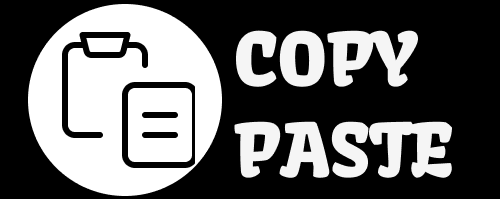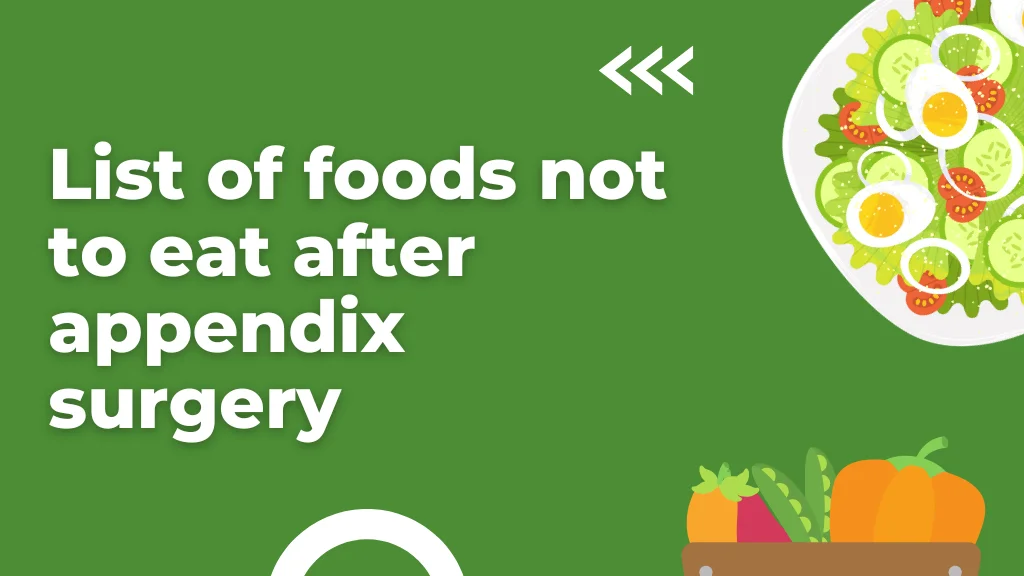Recovering from appendix surgery is a sensitive process, and the food you choose to eat plays a critical role in how smoothly your body heals. Many patients are often unsure about their diet after an appendectomy, which can sometimes delay recovery or even lead to discomfort. Understanding the list of foods not to eat after appendix surgery can help you avoid complications such as bloating, constipation, or infection while ensuring a steady return to normal health.
When your appendix is removed, your digestive system becomes more vulnerable for a short period. The intestines need time to adjust, and the surgical site requires nourishment without unnecessary strain. Eating the wrong foods can irritate the stomach lining, cause digestive issues, and slow down healing. That is why doctors and nutrition experts recommend being mindful of your diet during this crucial recovery stage.
Why Diet Matters After Appendix Surgery
Food is fuel for the body, but after surgery, it becomes more than just energy; it directly impacts how quickly your tissues repair themselves. A balanced, healing-friendly diet reduces inflammation, strengthens the immune system, and prevents complications. However, just as important as what you should eat is knowing what you should not. Avoiding certain foods ensures your digestive system doesn’t have to work harder than necessary, which can otherwise put pressure on your healing wound.
The surgical removal of the appendix often leaves patients with a temporarily weakened digestive system. Foods high in fat, sugar, or hard-to-digest fibers can trigger pain, indigestion, or bloating. That’s why it is important to understand which items should be avoided during recovery in order to prevent discomfort and support smooth healing.
Common Digestive Challenges After Appendix Removal
Before diving into the food list, it’s helpful to understand why certain foods can be problematic. Many people experience digestive sensitivity after surgery, including slower bowel movements, gas buildup, and occasional nausea. These issues are not unusual, as anesthesia, antibiotics, and reduced activity levels can all interfere with digestion.
The body is already working overtime to heal surgical wounds, so adding heavy or irritating foods can make things worse. For example, fried and greasy foods are tough to digest and may cause discomfort. Similarly, carbonated drinks can lead to bloating, while spicy foods may irritate the stomach lining. This is why dietitians stress the importance of identifying and avoiding foods that can compromise healing.
List of Foods Not to Eat After Appendix Surgery
When recovering from appendix surgery, diet plays a major role in avoiding discomfort and supporting healing. Below is a detailed look at the foods you should avoid, each explained so you can understand why they are harmful during recovery.
Fatty and Fried Foods
Greasy meals such as fried chicken, burgers, pizza, and French fries should be avoided because they put unnecessary pressure on your digestive system. After surgery, your stomach and intestines become more sensitive, and heavy fats take a long time to break down. This can lead to bloating, nausea, and sluggish bowel movements, which can be very uncomfortable during recovery. The excess oil in fried foods may also trigger inflammation, making your body work harder instead of focusing on healing. Choosing lighter meals not only helps digestion but also ensures you don’t feel tired or weighed down after eating.
Spicy Foods
Spices like chili, hot sauces, and strong curries can irritate the stomach lining, which is already delicate after surgery. Consuming spicy foods too early can cause burning sensations, stomach cramps, and sometimes even acid reflux. Your digestive system needs time to stabilize, and harsh spices only add unnecessary irritation. These foods can also slow down recovery because they may cause repeated discomfort, leaving you restless. It is always better to stick to mild flavors, using gentle herbs instead of strong chilies until your body feels strong again.
Processed and Packaged Foods
Foods like instant noodles, packaged chips, canned meals, and fast food are filled with preservatives, artificial flavors, and high amounts of sodium. These additives provide little nutritional value but are hard on your healing body. After surgery, your system needs natural nutrients for tissue repair, and processed foods only delay recovery. The high sodium content may also lead to water retention and bloating, making you feel uncomfortable. Moreover, processed snacks often contain unhealthy trans fats that your weakened digestion struggles to handle. Avoiding them allows your body to focus on healing instead of fighting unnecessary toxins.
High-Sugar Items
Cakes, pastries, candies, chocolates, and sweetened beverages may seem harmless but can slow down your recovery. Excess sugar weakens your immune system, which is already working hard to prevent infection after surgery. High sugar intake also causes spikes and crashes in energy levels, making you feel exhausted. For someone healing, consistent energy is important, and sugary foods fail to provide that. They also contribute to inflammation, which may slow wound repair. Replacing them with natural sweetness from fruits is a healthier way to satisfy cravings without harming your healing body.
Dairy Products in Excess
Milk, cheese, ice cream, and yogurt are usually part of a balanced diet, but after appendix surgery, they can sometimes cause digestive discomfort. Many patients experience bloating, gas, or even constipation when they consume too much dairy. Since your digestive system is sensitive, dairy can feel heavier than usual, slowing recovery. Ice cream and flavored yogurts also contain added sugars, which further complicate the healing process. While small amounts of dairy may be fine for some, moderation is key, and it’s best to reintroduce them slowly after consulting your doctor.
Carbonated and Caffeinated Drinks
Sodas, sparkling water, coffee, and energy drinks are among the most harmful choices during recovery. Carbonated drinks cause gas buildup and bloating, which can make abdominal pain worse. Caffeine, on the other hand, dehydrates the body and can irritate the stomach lining, increasing discomfort. Energy drinks often combine both carbonation and caffeine, making them especially unsuitable. Since hydration is essential for healing, replacing these with plain water, fresh juices, or soothing herbal teas is far better. This ensures your body receives the fluids it needs without digestive irritation.
High-Fiber Foods (Initially)
Although fiber is usually healthy, eating raw vegetables, beans, lentils, or whole grains immediately after appendix surgery can overload your sensitive stomach. Fiber-rich foods take more effort to digest and may cause gas or constipation in the early days of healing. This doesn’t mean you should avoid fiber completely, it just needs to be reintroduced gradually. Start with softer, cooked vegetables and easily digestible options before moving to raw salads or legumes. Eating too much fiber too soon can cause unnecessary discomfort, so timing is important.
Red Meat and Heavy Protein Sources
Red meat such as beef, mutton, and lamb is harder to digest compared to lean proteins like chicken or fish. The dense texture and fat content require more digestive effort, which your body might not be ready for after surgery. Eating red meat too early may cause bloating, stomach heaviness, and constipation. In addition, fatty cuts of meat may also slow down wound healing by increasing inflammation. Lean, soft proteins are a better choice until your digestive system has fully recovered.
Baked Goods with Refined Flour
White bread, pizzas, donuts, and pastries made with refined flour should also be avoided. These foods lack fiber and nutrients, which means they provide little to support healing. On top of that, refined flour can be heavy on digestion and often causes constipation when consumed in excess. Since constipation can be especially painful after abdominal surgery, it is best to limit refined carbs. Switching to lighter, whole-grain options later on is much healthier and more supportive of your recovery journey.
Alcohol
Alcohol is one of the most important things to avoid after appendix surgery. It not only irritates the stomach lining but also interferes with prescribed medications, particularly antibiotics and painkillers. Drinking alcohol can slow the healing process and even increase the risk of infection. It also dehydrates the body, which is dangerous during recovery. Patients are usually advised to avoid alcohol entirely until their doctor confirms it is safe to resume. Keeping alcohol out of your diet allows your body to heal without added strain.
Healing-Friendly Alternatives
Since avoiding the wrong foods is half the battle, the other half is ensuring your diet is filled with gentle, nutritious options. Easily digestible foods like clear soups, boiled rice, steamed vegetables, soft fruits, and lean proteins can supply essential nutrients without straining the stomach. Yogurt, if tolerated, can also help restore gut balance after antibiotics.
Instead of high-fat snacks, choose foods rich in vitamins and minerals. Instead of sugary sodas, drink water or fresh fruit juices. These small changes accelerate healing and prevent unnecessary discomfort.
Importance of Gradually Reintroducing Foods
One of the most common mistakes patients make is rushing back to their old eating habits. The digestive system needs time to return to normal functioning. Introducing heavy foods too soon can cause pain and prolong recovery. Doctors often advise starting with a soft, bland diet and then slowly reintroducing regular meals as tolerated.
It is also wise to listen to your body during this stage. If a particular food triggers discomfort, it’s best to avoid it until recovery is complete. Every patient’s healing timeline is slightly different, so dietary adjustments should be personalized.
Lifestyle Tips to Support Recovery
Beyond just avoiding certain foods, overall lifestyle habits play a role in recovery. Staying hydrated is crucial since water helps flush toxins and supports the healing of tissues. Gentle movement, such as short walks, aids digestion and prevents constipation. Adequate sleep also ensures that the body can direct energy toward repair. Combining these habits with mindful eating will significantly reduce complications and support faster recovery.
When to Consult a Doctor
Even with careful diet management, it’s important to recognize warning signs that require medical attention. Severe abdominal pain, persistent nausea, fever, or infection symptoms around the surgical site should not be ignored. Your doctor may recommend further dietary restrictions or medical treatment depending on your individual situation.
Conclusion
Recovering from appendix surgery is a gradual process, and your food choices directly impact the speed and smoothness of healing. By being mindful of what you consume and following the list of foods not to eat after appendix surgery, you can avoid unnecessary digestive stress and focus on regaining strength. Avoiding fatty, spicy, processed, and sugary foods while embracing gentle, nutritious alternatives ensures your body has the best environment for recovery. A careful diet, combined with hydration, rest, and gradual reintroduction of regular meals, is the key to safe and effective healing.
FAQs
Can I eat spicy food after appendix surgery?
Spicy foods should be avoided during the initial recovery period as they can irritate the stomach lining and slow down healing.
Is milk safe to drink after appendix removal?
Some patients tolerate milk well, but others experience bloating. It’s best to introduce it slowly and stop if discomfort occurs.
How long should I avoid fried foods after surgery?
Doctors usually recommend avoiding fried and greasy foods for at least 2–3 weeks or until your digestive system feels comfortable again.
Are fruits safe to eat after appendix surgery?
Soft, ripe fruits like bananas and melons are generally safe. Avoid raw, hard-to-digest fruits with high fiber during the early recovery stage.
Can I drink coffee after appendix removal?
It’s best to avoid caffeine for the first few weeks, as it can irritate the digestive system and cause dehydration.





